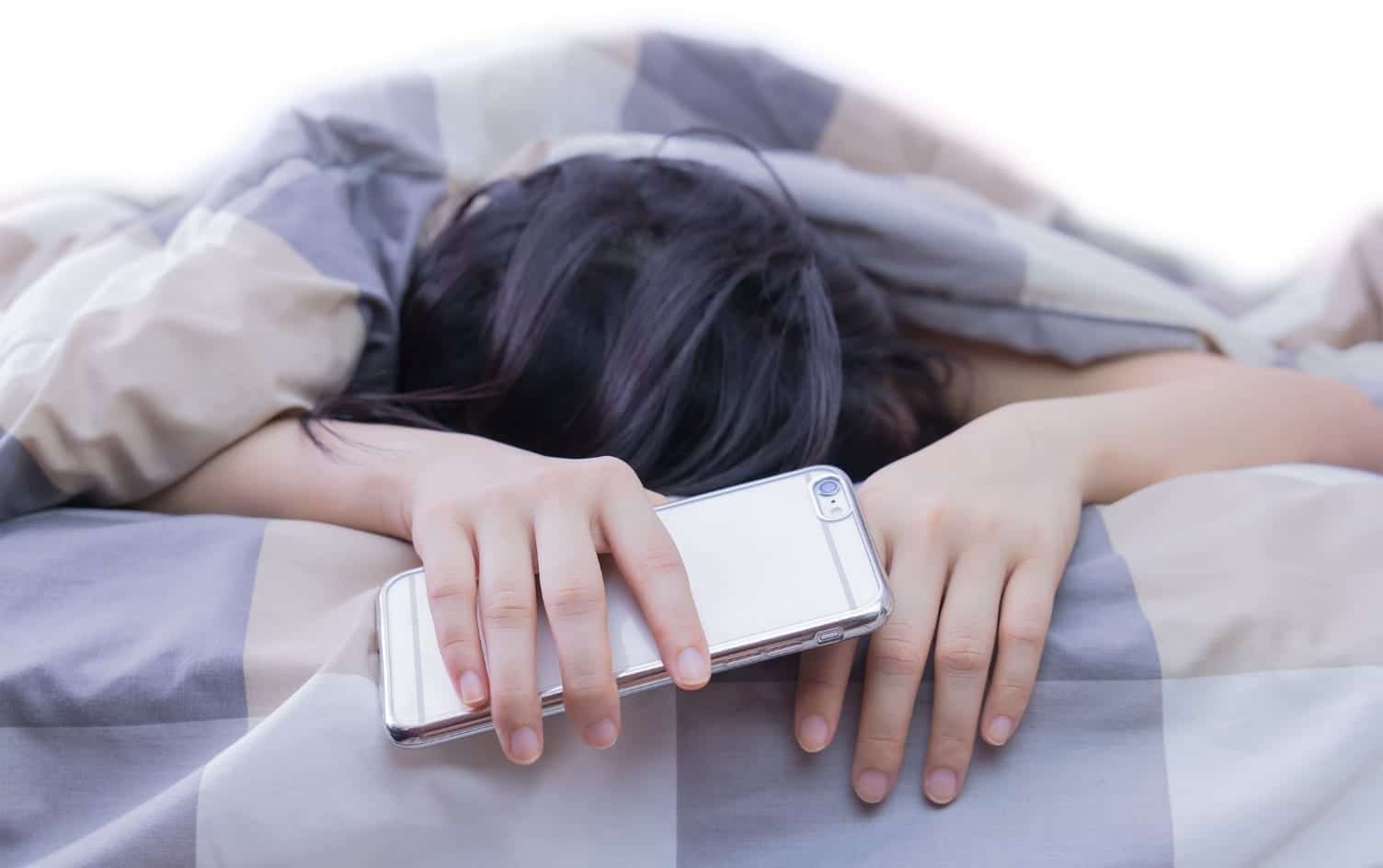If you check email before bed, scroll social media feeds from under the covers and fall asleep binge watching crime dramas, you’re in good company. A 2019 survey found 29% of parents looked at their phones before bed and 1 in 4 woke up at least once each night to check their devices.
THE SCREEN TIME AND SLEEP QUALITY CONNECTION
Being glued to your tablet or smartphone could be making you toss and turn at night, according to studies linking screen time with poor sleep quality.
“It’s possible the emotional stimulation from the content you [take in] on your smartphone or tablet may subvert your attempts to initiate and maintain sleep,” says Dr. Gregory Marcus, a cardiologist and professor of medicine at the University of California San Francisco. “The bright light, and in particular the blue light, may also have physiologic effects related to melatonin release, for example, that impede natural sleep.”
Regardless of how screens impact your sleep, the association is clear.
Marcus co-authored a study that found a connection between screen time and shorter sleep duration and the impact was more pronounced if screens were used before bed, which not only made it harder to fall asleep, but also decreased sleep quality. The takeaway message, according to Marcus, “The longer the screen time, the worse the sleep.”
HOW REDUCING SCREEN TIME HELPS
You don’t have to give up your devices completely to drift into a deep sleep and wake up feeling well-rested.
New research presented at the annual meeting of the European Society of Endocrinology found teenagers who spent more than four hours per day on their screens fell asleep an average of 30 minutes later than those who spent less than an hour per day on their devices. Reducing their evening exposure to screens for just one week improved sleep quality and reduced feelings of fatigue.
“Some physicians may advocate avoiding screens altogether close to bedtime to avoid [sleep issues],” says Dr. Susheel Patil, PhD, clinical director of the Johns Hopkins Pulmonary Sleep Medicine Program. “While that would certainly be best, there may be situations where the use of screens may be acceptable, such as listening to relaxing music or reading relaxing materials with the aid of blue-light blocking technologies.”
THE SNOWBALL EFFECT
Just like screen time could be interfering with sleep, sleep issues like insomnia could be leading you to spend more time glued to your devices. If you wake up in the middle of the night, read a book, do a few yoga poses or meditate instead of scrolling social media or streaming the latest series.
The more time you spend staring at a screen, the less time you spend engaged in physical activity, Patil says. Not only can exercise promote sleep, research has linked a sedentary lifestyle to an increased risk of insomnia.
THE BOTTOM LINE
For the sake of your health, Marcus offers some advice:
“Ideally you should avoid screens … before bed,” he says. “There is now convincing evidence that sufficient sleep is critical to overall health [and] avoiding screens shortly before bed and avoiding the temptation to check your phone or tablet if you are having trouble sleeping are part of a multitude of strategies that can facilitate achieving and maintaining adequate sleep.”




